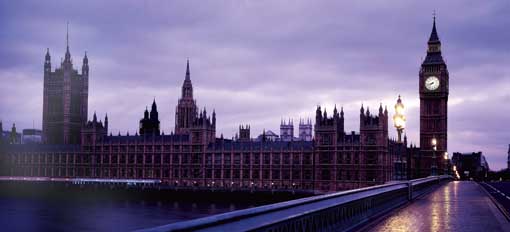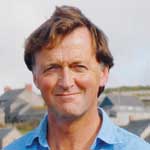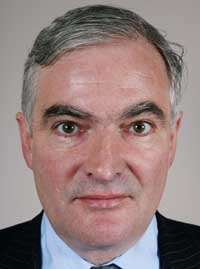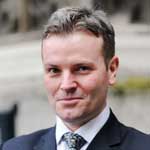Do these MPs fit the bill for food and farming?

Liberal democrats
17-21 September, Birmingham
 Andrew George
Andrew George
Chairman of the Lib Dem’s DEFRA policy committee.
DEFRA was one of five government departments not to have a Liberal Democrat representative appointed to its team following the coalition agreement in May 2010.
After hinting at a coalition rift last year, when he said he had been left out of the “inner circle” when it came to making key farming decisions, he became chairman of the Lib Dem’s DEFRA policy committee. With a rural constituency in Cornwall and the Isles of Scilly and a background in agriculture, Mr George has been vocal on farming issues including bovine TB and supermarket power over suppliers. He is also chairman of the Grocery Market Action Group.
Expected to talk about at the party conference:
Mr George has expressed concerns over introducing a badger cull to tackle bovine TB and has also criticised the Conservative party’s decision to abolish the Agricultural Wages Board, so both subjects are likely to be raised. Discussions around the Lib Dem’s contribution to agriculture are also expected.
Most likely to say:
A badger cull seriously risks making the TB situation worse.
Least likely to say:
I’m happy to take a back seat on this one, Mrs Spelman.
A success so far?
While he has been vocal on culling badgers and his support for a retailer ombudsman, with no Lib Dem position in DEFRA’s ministerial team, Mr George’s influence is arguably limited. “His position as chairman of the DEFRA policy committee is a sop to him really,” said one industry insider. “At the end of the day it’s the Conservatives who are making the decisions in DEFRA.”
Conservatives
2-5 September, Manchester
 Caroline Spelman
Caroline Spelman
DEFRA secretary
It has been a challenging year for Caroline Spelman. Under fire for planning to sell parts of England’s forests in February, she was forced to back down and apologise for the political and public uproar the proposals caused. The forestry plans were meant to be a way of saving money at DEFRA and formed part of her plans to reduce the department’s spending by a third. While the budget cuts won her favour in government, they were not welcomed so warmly by farming leaders, who warned of the risks of cutting spending “on the front line” of the industry. Elsewhere, she was forced to set the record straight on the future of subsidies, denying she wanted to abolish direct support immediately, but stressing they could not be “retained in perpetuity”. She has also argued for substantial cuts in the €60bn CAP budget and has been vocal in her opposition to proposals to “green” direct payments. The industry is currently waiting to hear if her most recent plans – to introduce a pilot badger cull in TB hotspots in a bid to tackle TB – are to get the go-ahead.
Expected to talk about at the party conference:
Plans for the 2013 reform of the CAP are due to be announced next month and Mrs Spelman has been utilising her skills as a fluent French and German speaker to get to the heart of reform debate, so it is subject that is expected to rear its head during the conference. Concerns over rising food prices and sustainable food production are also likely to get an airing.
Most likely to say:
Farmers should be preparing for the end of subsidies.
Least likely to say:
I don’t ever mention it, so you probably aren’t aware that I used to work at the NFU
A success so far?
Despite having a grounding in agriculture, Mrs Spelman has failed to win the hearts of farmers. Her major speeches have often shown her to be at odds with the mindset of the industry and she has been less visible on the farming circuit than her predecessors – neither of which has played well with farmers. One industry commentator said: “She has done better recently, particularly her performance on the TB announcement. But early on there was a sense she wasn’t getting strong political advice. You would expect ministers to pick up the subtleties of their portfolio quickly, but she took a while.”
 Jim Paice
Jim Paice
Farm minister
Farmers’ favourite Jim Paice had waited a long time for a ministerial position in the DEFRA team before finally being handed the chance in May last year. A Cambridgeshire farmer, he is widely regarded as having a firm understanding of the issues affecting the industry and as such farmers have high expectations of him. He raised a few eyebrows when he to oversee work at the Rural Payments Agency in July 2010, pledging to reverse the failures of the shambolic subsidy system, but things do seem to be picking up under his watch. He has been a strong advocate of introducing a badger cull as part of plans to tackle bovine TB and has introduced a consultation to cut red tape in farming. Most recently he has been challenged on laws surrounding Chinese lanterns and CCTV in abattoirs.
Expected to talk about at the conference:
Badgers. The consultation period for whether a pilot cull should be given the go-ahead ends on 20 September – just days before the Labour conference starts – so the topic of bovine TB is likely to come up.
Most likely to say:
We are cracking the problems at the RPA
Least likely to say:
Excuse me while I go and set off some Chinese lanterns
A success so far?
Mr Paice has been vocal about issues affecting farmers, but the industry is still waiting to see any real action. The outcome of the red tape and – most importantly – the badger cull consultations will have a lot to play on whether he stays in farmers’ good books. “Jim’s political expertise around farm policy is highly tuned – and thank God he’s been there to pick some up some of the gaffes Spelman has made,” said one industry official. “But it was easy for him to be critical and make promises when he was in opposition. The reality of having to actually deliver when in government is tough.”
 Richard Benyon
Richard Benyon
Minister for the natural environment and fisheries
He describes himself as a “local farmer and businessman”, but with a 20,000 acre estate at his ancestral home in Reading, few farmers would describe him in a similarly humble way. MP for Newbury in May 2005, he has experience in agriculture having studied at the Royal Agricultural College and was appointed to the shadow DEFRA team in 2009.
 Lord Henley
Lord Henley
DEFRA spokesman in the House of Lords
Another farmer on the DEFRA team, Lord Henley lives in a castle – complete with two moats – on a 20,000 acre estate in Cumbria. He fronted the government’s anaerobic digestion strategy which was launched in December and is also interested in other forms of renewable energy. Most recently he was in Cumbria meeting farmers as part of the 10-year anniversary of the Voluntary Initiative. A champion marmalade maker, in February he won first prize at the World Marmalade Awards in Penrith.
Labour
25-29 September, Liverpool
 Mary Creagh
Mary Creagh
Shadow DEFRA secretary
After a quiet start, the MP for Wakefield has started to find her feet as shadow DEFRA secretary and has become more vocal about farming issues in recent months. Like her predecessor, Hilary Benn, Mrs Creagh is refusing to back a badger cull as an answer to the problem of bovine TB. She is also heavily critical of the government’s plans to scrap the Agricultural Wages Board, claiming it would lead to a fall in farm workers’ incomes.
Expected to talk about at the conference:
Mrs Creagh has recently launched a campaign – including an online petition – in opposition to the planned badger cull. While the consultation will have come to an end by the time of the conference, it is still a subject that is likely to provoke discussion. She is also likely to criticise DEFRA’s efforts to address the issues of rising food prices and increased costs to farmers.
Most likely to say:
You’ve got it wrong, Mrs Spelman.
Least likely to say:
Forget about the science, let’s go and shoot some badgers.
How successful have they been so far?
Mrs Creagh has picked up on the policy areas left by her predecessor and has yet to make her own stamp on Labour’s farming policy – but this might change when the party publishes its policy review in the coming weeks. If her steadfast refusal to consider the merits of a badger cull remains, she is never going to endear herself to the majority of farmers. “Farming isn’t a policy area she’s experienced in, so it’s been easier for her to toe the line and pick up what Hilary Benn left,” said an industry insider. “She’s very political though – I don’t think she’s interested in the industry but if she can she will do anything to score a political point over the coalition.”
 William Bain
William Bain
Shadow food and farming minister
Willie Bain is MP for Glasgow North East. A member of parliament since 2009, he lists his political interests as transport, economy, welfare state, climate change, constitutional reform, foreign affairs and human rights.
 Jamie Reed
Jamie Reed
MP for Copeland, Cumbria
Jamie Reed’s ministerial areas of interest include waste water, anaerobic digestion and green energy. According to a party spokesman, the most recent trip he took as part of his post was to go down a sewer.
 Gavin Shuker
Gavin Shuker
Luton MP
Gavin Shuker was appointed to shadow minister for the natural environment in October 2010. The youngest-serving front bencher, 29-year-old Mr Shuker’s profile on micro-blogging site Twitter warns his followers that while he is a shadow minister, he is “more likely to tweet about kittens”.
What do you think about how the politicians are shaping up? Give your opinion and see what others are saying on our forums.
